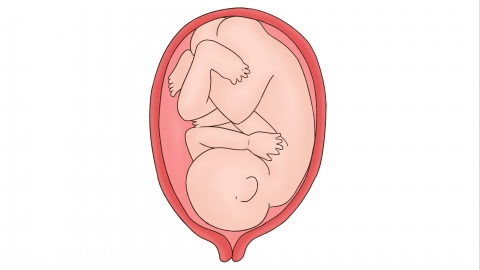Can I eat Malabar spinach during pregnancy to maintain fetal health?
Jun 10, 2025
Source: Cainiu Health
Introduction
If a pregnant woman is in good health during the fetal protection period, with no abnormalities such as abdominal pain or vaginal bleeding, she may, after evaluation by a physician, cautiously consume small amounts of Malabar spinach (Basella alba). The Malabar spinach must be thoroughly cooked until tender and prepared with warming ingredients; raw consumption or excessive intake should be avoided. It contains vitamins and dietary fiber that may help supplement nutrition and prevent constipation. However, intake must be strictly controlled to avoid its cooling properties potentially affecting the effectiveness of fetal protection.
Whether or not a pregnant woman can consume Malabar spinach (Basella alba) during fetal protection (to maintain pregnancy) depends on her physical condition and the advice of her physician. If her constitution is stable, there is no risk of miscarriage, and her doctor permits it, then small amounts may be cautiously consumed. However, if her constitution is cold-deficient or there are signs of miscarriage, it is not advisable to eat Malabar spinach. Detailed analysis is as follows:
 If a pregnant woman's physical condition is good during the fetal protection period, and there are no abnormalities such as abdominal pain or vaginal bleeding, she may cautiously consume small amounts of Malabar spinach after medical evaluation. The spinach must be thoroughly cooked until tender and ideally combined with warming ingredients. Raw or excessive consumption should be avoided. The vegetable contains vitamins and dietary fiber that can help supplement nutrition and prevent constipation. However, intake must be strictly controlled, as its cold nature may interfere with the effectiveness of fetal protection.
If a pregnant woman has a cold-deficient constitution or symptoms of threatened miscarriage, such as abdominal pain or backache, the cold nature of Malabar spinach may stimulate the uterus, aggravate blood and qi stagnation, and increase the risk of miscarriage. According to traditional medicine, certain cold-natured vegetables may affect fetal stability. Although modern medicine does not specify clear contraindications, for safety reasons, consumption should be avoided in such cases. Priority should be given to warm-nourishing, easily digestible foods.
Pregnant women should maintain a positive and optimistic mindset, follow a balanced diet, engage in moderate exercise, attend regular prenatal checkups, and adhere to professional medical advice in order to ensure the health of both mother and baby.
If a pregnant woman's physical condition is good during the fetal protection period, and there are no abnormalities such as abdominal pain or vaginal bleeding, she may cautiously consume small amounts of Malabar spinach after medical evaluation. The spinach must be thoroughly cooked until tender and ideally combined with warming ingredients. Raw or excessive consumption should be avoided. The vegetable contains vitamins and dietary fiber that can help supplement nutrition and prevent constipation. However, intake must be strictly controlled, as its cold nature may interfere with the effectiveness of fetal protection.
If a pregnant woman has a cold-deficient constitution or symptoms of threatened miscarriage, such as abdominal pain or backache, the cold nature of Malabar spinach may stimulate the uterus, aggravate blood and qi stagnation, and increase the risk of miscarriage. According to traditional medicine, certain cold-natured vegetables may affect fetal stability. Although modern medicine does not specify clear contraindications, for safety reasons, consumption should be avoided in such cases. Priority should be given to warm-nourishing, easily digestible foods.
Pregnant women should maintain a positive and optimistic mindset, follow a balanced diet, engage in moderate exercise, attend regular prenatal checkups, and adhere to professional medical advice in order to ensure the health of both mother and baby.









